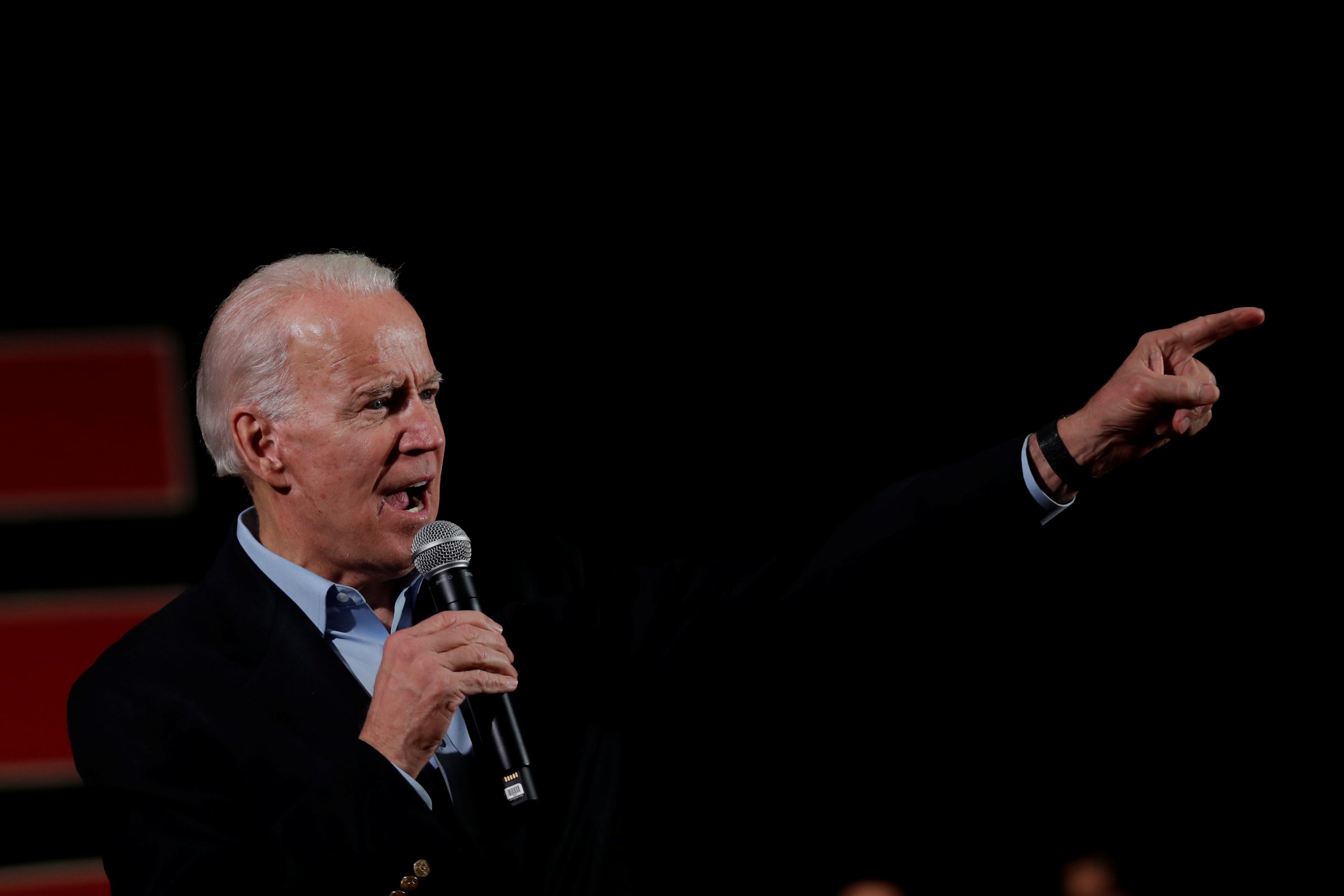Republican Donald Trump is touting tax cuts and economic gains during his presidency as a reason why he should get re-elected in November.
Democrats seeking to challenge him say Trump’s economy has benefited the rich while leaving behind the working class. Their proposals range from a sweeping pledge of universal healthcare to comparatively modest tax breaks for the poor.
Here are some of the views of the top 2020 presidential candidates on jobs, taxes and government assistance.
Republican President Donald Trump
Trump says his efforts to deregulate industries and cut taxes have boosted the stock market and brought the unemployment rate to historic lows. “We’re an economic powerhouse like actually we’ve never been,” he told reporters in Davos, Switzerland, on Jan 22.
The president has said his second term might include an expanded trade agreement with China after Washington and Beijing signed a deal on Jan, 15 that signaled a truce in their trade war.
The deal rolled back some U.S. tariffs hiked under Trump in exchange for Chinese pledges to purchase more U.S. farm, energy and factory goods and to address U.S. complaints about intellectual property practices.
Trump is also considering additional tax cuts for the middle class, and White House economic adviser Larry Kudlow has said such a plan could be announced in mid-2020.
Former Vice President Joe Biden
Biden, a leading contender for the 2020 Democratic nomination, would roll back some of the 2017 tax cuts backed by Trump. Doing so would help pay for plans to expand health coverage by building on the 2010 Affordable Care Act, popularly known as Obamacare.
Biden would raise the marginal tax rate on the highest income earners back to 39.6%, from 37%, and would also raise some taxes on investment profit.
Like many of the Democratic contenders, he also supports raising the federal minimum wage to $15 an hour from $7.25 and expanding some tax credits for lower-income workers.
But Biden, the leading moderate Democrat in opinion polls, has stopped short of endorsing more aggressive economic proposals embraced by his rivals like a federal tax on wealth.
U.S. Senator Bernie Sanders of Vermont
Sanders, a self-described democratic socialist and also a major contender, has made lowering economic inequality a core plank of his campaign.
He wants to guarantee all Americans a job and proposes a government takeover of the health insurance industry as well as tuition-free public colleges.
Sanders backs a wealth tax that would begin at 1% for people with a net worth above $32 million and rise in increments to 8% on wealth over $10 billion, hitting the wealthiest 180,000 Americans.
Many of Sanders’ proposals are controversial within his own party and could face long odds of winning approval in the U.S. Congress.
U.S. Senator Elizabeth Warren of Massachusetts
“I have a plan for that,” Warren says frequently on the campaign trail, citing her numerous progressive proposals for deep changes in the U.S. economy.
Warren backs a wealth tax of 2% of people’s net worth above $50 million and 3% for wealth over $1 billion.
She also backs abolishing private health insurance, but released a plan in November to delay full implementation of the overhaul for three years.
A top contender in polls along with Biden and Sanders, Warren also supports hiking Social Security benefits for older Americans, canceling some student-loan debt and making tuition free at public colleges.
Former New York Mayor Michael Bloomberg
Bloomberg is a late entry to the nomination contest and has pledged to narrow the wealth gap between black and white Americans by boosting African-American ownership of homes and businesses and by investing in poor neighborhoods.
A billionaire with one of America’s largest fortunes, Bloomberg has pledged to help blacks with mortgage down-payment assistance.
He also backs a higher minimum wage and tax credits for lower-income workers. Bloomberg has said the rich should pay higher taxes, but has yet to release a detailed plan on tax policy. He says his relatively moderate economic proposals stand a better chance of getting through the polarized U.S. Congress.
Pete Buttigieg, former mayor of South Bend, Indiana
Hailing from a city ravaged by the loss of automobile manufacturing, Buttigieg backs relatively moderate policies to reshape a U.S. economy he sees as tilted to the wealthy.
Those include a pledge to spend more on education, albeit without making college free for everyone.
He has also proposed boosting investment in the African-American community and rural areas and making companies disclose gender pay disparities.
Businessman Andrew Yang
The former tech executive’s signature proposal is what he calls the “Freedom Dividend,” which would give all U.S. adults a $1,000 check every month.
He says that would lift people out of poverty and help workers displaced by technological advances.
Yang has proposed paying for the new benefit partly by levying a 10% value-added tax, a fee attached to purchases made by businesses and consumers.
U.S. Senator Amy Klobuchar of Minnesota
Klobuchar, who has sponsored or co-sponsored more than 100 bills that became law, says her experience would help her win support in Congress for her moderate proposals, which include making it free to attend community colleges but not four-year colleges.
She also has pledged to direct her attorney general to review mergers that have already taken place to prevent monopolies from forming and to repeal part of the Trump tax cuts.
Former hedge-fund manager Tom Steyer
Tom Steyer, a billionaire former investor, has said he supports a tax that would cut his own wealth.
He has proposed charging people with a net worth over $32 million a 1% tax. For middle-income workers, he wants to increase tax rebates and retirement benefits.
(Reporting by Trevor Hunnicutt in New York and Jason Lange in Washington; Editing by Peter Cooney)
























